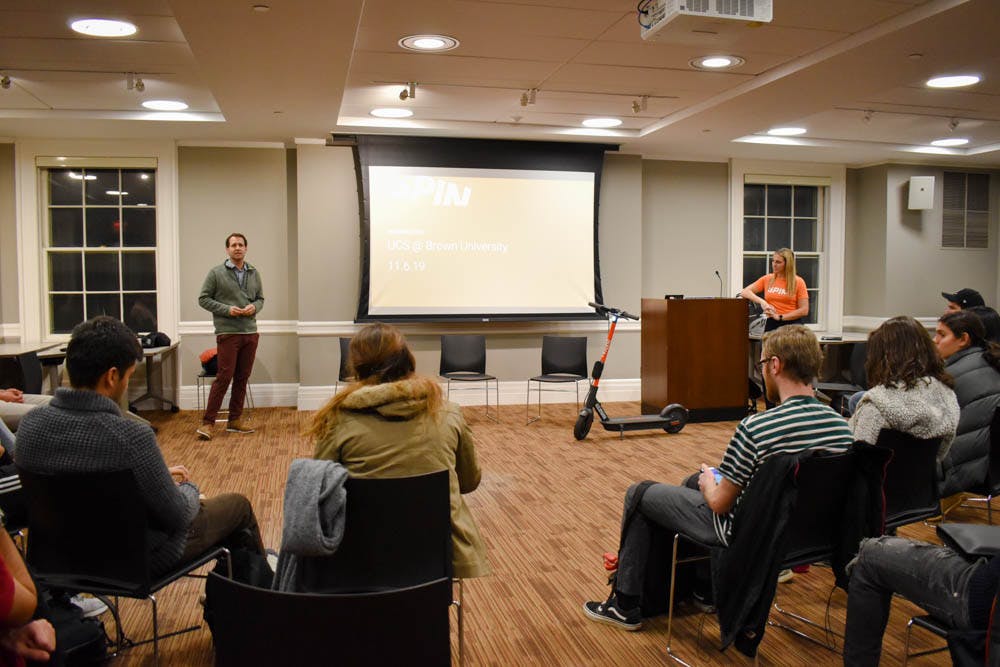Representatives from e-scooter company Spin presented on a potential partnership with the University at the Undergraduate Council of Students’ general body meeting Wednesday evening.
Spin deployed scooters in Providence last month, The Herald previously reported. But the company wants a “true collaboration with the University, which means understanding needs and concerns of campus stakeholders,” according to the presentation.
“The opportunity here is to customize and tweak the program just for Brown,” said Spin University Partnerships Manager John Lankford. “Instead of just having (scooters) around, how can we actually … turn them into a viable transportation tool for students and staff?”
Spin staff members began discussions with University administrators a few months ago, Lankford said. The University could not be reached for comment by press time.
In addition, Spin hopes to continue discussions with students through groups such as UCS and Disability Justice at Brown. Spin also hopes to explore conversations with students affiliated with the Undocumented, First-Generation College and Low-Income Student Center, Lankford added.
Similar to the agreement between Spin and Providence, a partnership between Spin and the University would likely run in a one-year pilot, Lankford said. The agreement would share data about student scooter use, address affordability for students and deploy three scooter charging stations around campus at no additional cost to the University.
The partnership would also give University students a rider discount and include Spin Access, a program designed to make scooters more accessible for low-income students and students without bank accounts.
Spin is different from other scooter companies in part because it emphasizes responsible riding through education, Lankford said. The company’s app presents users with educational slides on proper parking and safety procedures, and uses geofencing technology to create no-ride and slow-ride zones.
After Lankford and Spin Providence Operations Manager Alyssa Gergel presented, the Council discussed ideal charging station locations, no-ride zones and student perks. Concerns about the scooters include the potential safety hazards of scootering while under the influence.
Lankford said the company’s scooters cannot be operated during a curfew period from 10 p.m. to 5 a.m. This is “our tool for drunk scooting,” he said.
Some general body members suggested Josiah’s and Verney-Woolley Dining Hall as potential charging hubs, and others noted that scooters should not operate on University pathways because they are often crowded with pedestrians.
Chair of Student Wellness Shivani Nishar ’20 also raised concerns about how a scooter program on campus would impact students with disabilities, especially on narrow sidewalks that may be utilized by both scooter riders and students who use wheelchairs.
“Getting it right in terms of how scooter companies take into consideration (Americans with Disabilities Act of 1990) requirements is an issue everywhere,” Lankford told The Herald.
The Council also discussed preferences for kitchen layout options in the new, integrated health and wellness center and residence hall, which the University hopes to complete by fall 2021, The Herald previously reported. Council members did not reach a conclusion on a preferred layout.





